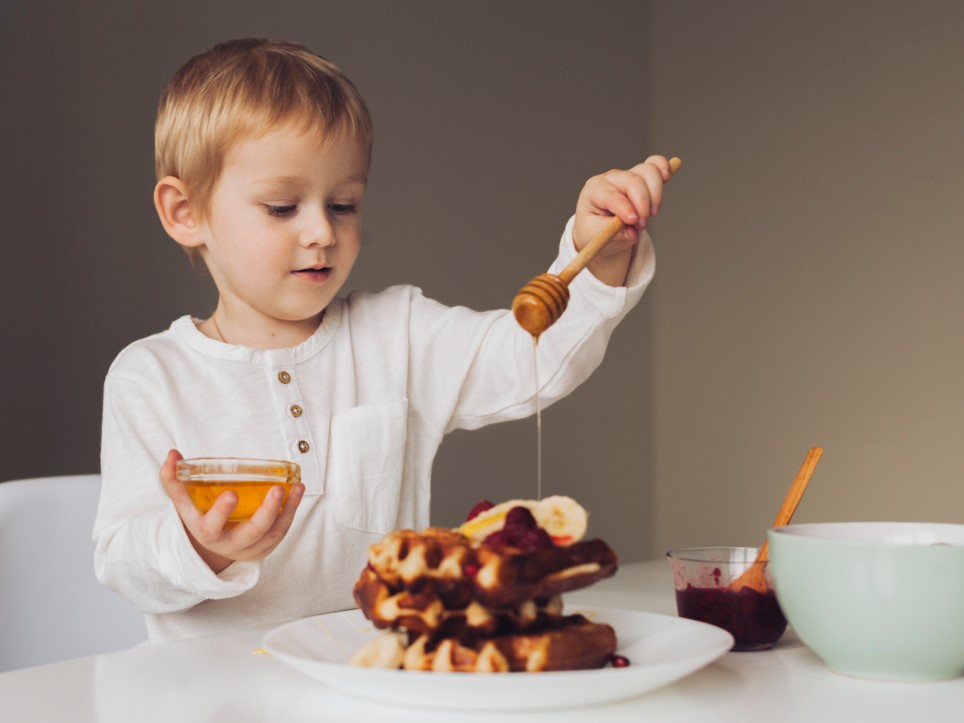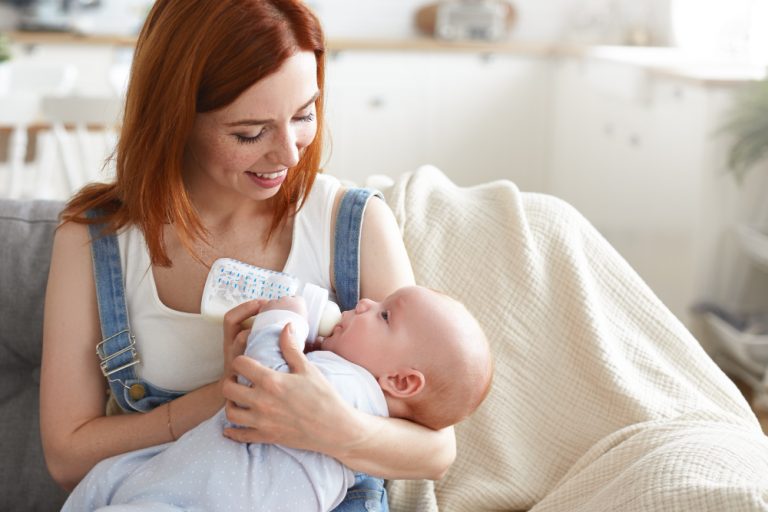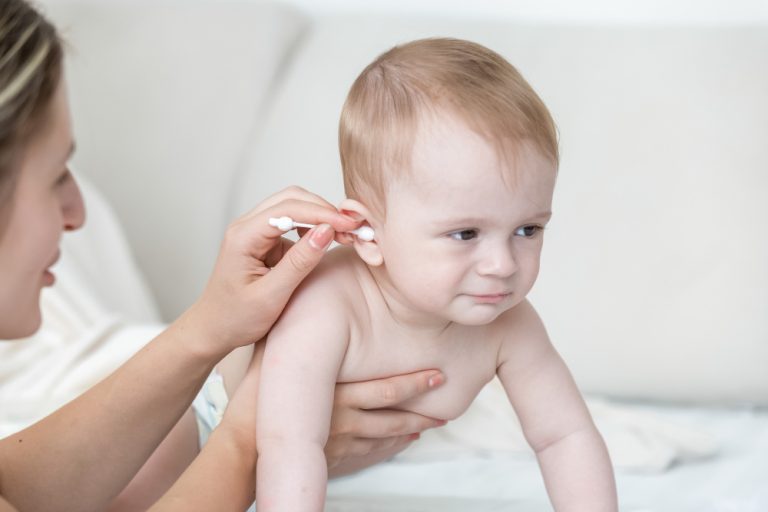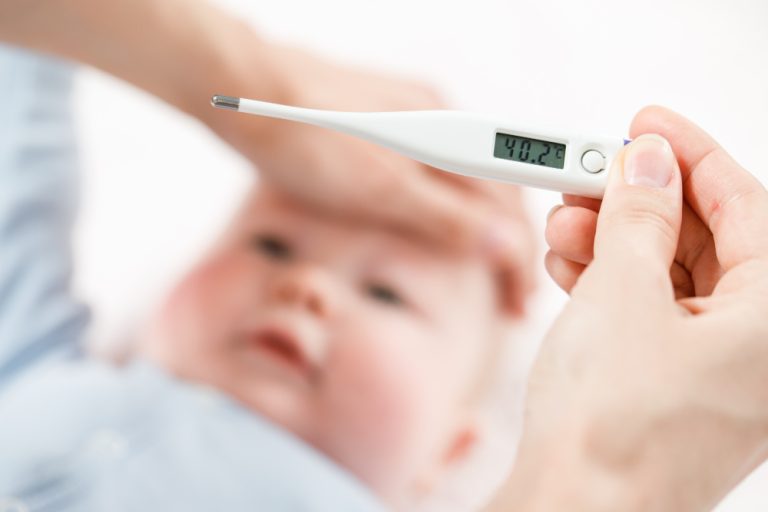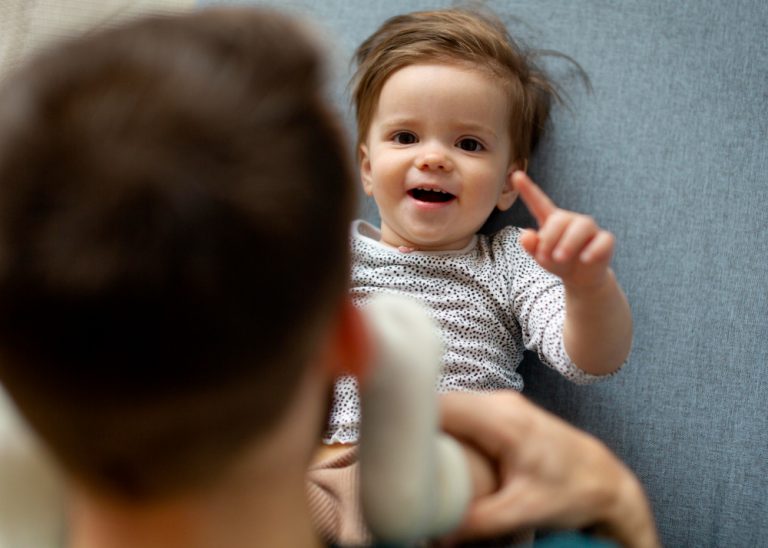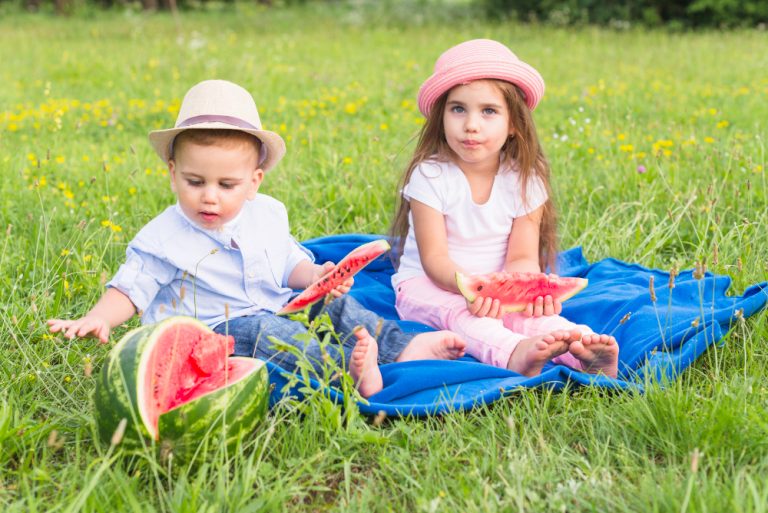When Can Babies Have Honey? Introducing Honey To Babies
Are you curious about when can babies have honey? Do you know the potential risks associated with feeding honey to infants? As a parent, it’s natural to have questions about what’s safe and healthy for your baby. And when it comes to honey, the decision is not as straightforward as it may seem. So, let’s explore the topic together and learn more about when babies can have honey and what precautions you need to take.
In this comprehensive guide, we delve into the intricacies of when can babies have honey. From the appropriate age for introducing honey to your baby to the guidelines on avoiding the risk of infant botulism, we cover all you need to know for your child’s well-being.
So, if you’re navigating the complexities of your baby’s diet and considering incorporating honey, this blog will provide expert advice, insights, and safety recommendations to help you make informed decisions. Let’s ensure your baby’s health is prioritized while exploring the world of diverse foods.
Introducing Honey to Babies

As parents, it’s natural to have questions and concerns about what foods are safe to introduce to your baby, especially when it comes to honey. While honey is a delicious and nutritious sweetener enjoyed by adults, it’s important to note that it is not recommended for infants under a certain age. This is primarily due to the potential risk of infant botulism, a rare but severe illness caused by the bacteria Clostridium botulinum that can be present in honey.
Understanding when it is safe for babies to have honey is crucial to ensure their well-being and avoid any potential health complications. The American Academy of Pediatrics advises that infants under 12 months of age should not consume honey. This guidance is supported by pediatric nutrition practice guidelines worldwide.
The reason for this guideline is the immature digestive system of infants, which may not be equipped to handle the bacteria sometimes found in honey. While adult digestive systems can effectively neutralize these bacteria, babies’ immune systems are still developing and may be more susceptible to certain infections.
It is important to note that even a tiny amount of honey poses a risk for infants, including those in baked goods or as an ingredient in home remedies. Therefore, it’s best to strictly adhere to the guideline of avoiding honey until your child’s first birthday.
By following these guidelines, you can help protect your little one from the risk of infant botulism and ensure their health and safety.
When Can Babies Have Honey? Understanding the Guidelines
When it comes to introducing honey to babies, it’s crucial to follow the guidelines set by experts to ensure their safety and well-being. While honey offers numerous benefits, it’s essential to know when it’s safe to introduce this sweet treat to your little one. Here, we will discuss the guidelines recommended by experts on when babies can have honey based on their age.
Before 12 Months: No Honey
The American Academy of Pediatrics strongly advises against giving honey to infants under 12 months of age. This is due to the risk of infant botulism, a rare but serious illness caused by the bacteria Clostridium botulinum. Infants’ digestive systems are still developing, and they may not have the necessary defenses to fight against these bacteria. Therefore, it’s essential to avoid giving honey to babies before their first birthday.
After 12 Months: Small Amounts of Honey
Once your baby reaches their first birthday, it is generally considered safe to introduce small amounts of honey into their diet. However, it’s important to note that honey should still be given in moderation and under adult supervision. Start by offering a small quantity of honey, like a teaspoon, and observe your baby for any adverse reactions.
Precautions and Considerations
While honey can be introduced after the age of one, it is crucial to assess your baby’s readiness and consult with their healthcare provider. Some babies might have a higher risk of allergic reactions or other health problems that may warrant avoiding honey altogether. Additionally, always ensure that the honey you provide is of high quality and from a reliable source.
Remember, even though honey can be a tasty addition to your baby’s diet, it’s vital to follow these guidelines to protect them from the risk of infant botulism. Always prioritize your baby’s safety and consult with their healthcare professional for personalized recommendations.
By understanding and adhering to these guidelines, you can safely introduce honey to your baby’s diet and enjoy the benefits it offers, while ensuring their health and well-being.
Honey Nutrients for Babies
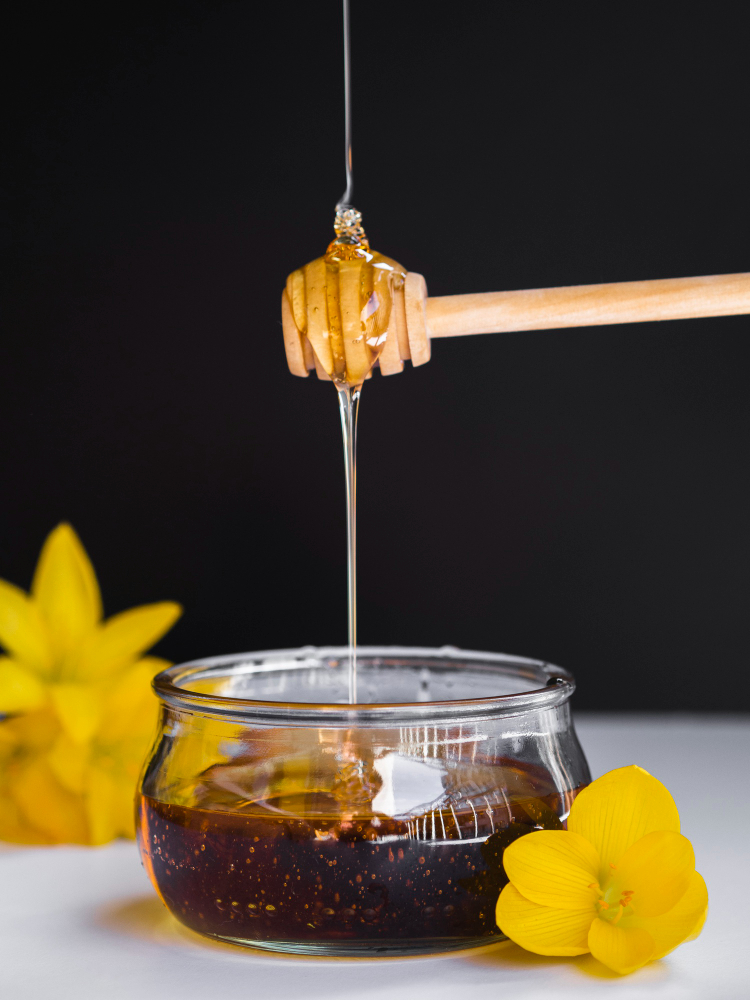
Honey not only adds a touch of sweetness to your baby’s diet but also provides several nutritional benefits. Here’s a glimpse into the nutrients honey offers and its potential role in your baby’s overall diet:
1. Natural Energy Booster
Honey is a natural source of carbohydrates, providing a quick and sustained energy boost for your little one throughout the day.
2. Vitamins and Minerals
Although honey is not a significant source of vitamins and minerals, it contains trace amounts of essential nutrients such as vitamin C, riboflavin, calcium, and iron, which can contribute to your baby’s overall nutrient intake.
3. Antioxidant Properties
Honey is known for its antioxidant properties, which can help protect your baby’s cells from damage caused by harmful free radicals.
4. Digestive Health
Some types of honey contain small amounts of prebiotics, which can support a healthy gut microbiome and aid in digestion for your baby.
It’s important to note that while honey can offer nutritional benefits, it should only be introduced to babies after their first birthday. Make sure to consult with your pediatrician before incorporating honey into your baby’s diet to ensure it aligns with their specific nutritional needs and potential allergy concerns.
Remember, despite the nutritional value honey provides, safety should always be the top priority when it comes to feeding your little one.
Age Guidelines for Introducing Honey
When it comes to introducing honey to your baby, it’s important to follow the recommended age guidelines to ensure their safety. Honey is not suitable for infants under the age of one due to the risk of infant botulism, a rare but serious illness caused by a bacteria called Clostridium botulinum found in honey. Here are the age ranges to keep in mind:
From Birth to Six Months
For babies between birth and six months of age, it is advised to avoid giving them honey altogether. Their immune systems are still developing, and they are more susceptible to the bacteria that may be present in honey. It’s best to wait until they turn one year old before introducing honey into their diet.
Six Months to One Year
Between six months and one year of age, parents may consider introducing small amounts of honey to their baby’s diet. However, it’s crucial to seek guidance and consult with a pediatrician before doing so. They can provide personalized advice and ensure that your baby is ready for honey consumption.
One Year and Older
Once your baby reaches their first birthday, they can safely enjoy honey in moderation. At this stage, their digestive system is more developed, and the risk of infant botulism is significantly reduced. However, it’s important to remember that honey should still be given in small quantities and as part of a balanced diet.
Considerations for Different Developmental Stages
While age is a primary factor when introducing honey, it’s also essential to consider your baby’s individual developmental stage. Some babies may have specific dietary restrictions or health conditions that require closer attention and consultation with a healthcare professional.
Remember, the goal is to ensure your little one’s safety and well-being. Following these age guidelines and seeking professional advice will help you make informed decisions when introducing honey to your baby’s diet.
Why Can’t Babies Have Honey?
When it comes to babies and honey, caution is of utmost importance. While honey is a nutritious and delicious food for adults, it can pose serious health risks to infants, mainly due to a condition called infant botulism. Infant botulism occurs when the bacteria Clostridium botulinum, commonly found in honey, releases toxins in a baby’s digestive system.
Infants under the age of one year are particularly susceptible to botulism because their digestive systems are not yet fully developed. Unlike older children and adults, babies lack the necessary enzymes to effectively combat the botulinum toxin, which can lead to muscle weakness, breathing difficulties, and even death.
It’s crucial to note that this risk applies not only to pure honey but also to any honey-containing product, such as honey-based cough syrups or home remedies. Even a tiny amount of honey can potentially trigger infant botulism.
To protect your little one, it’s recommended to avoid giving honey to babies until after their first birthday. This restriction aims to ensure the baby’s digestive system has matured sufficiently to handle the potential risks associated with honey consumption. Additionally, it’s important to remember that heating or cooking honey does not eliminate the botulinum toxin, so even warm honey is not safe for babies.
In summary, while honey offers numerous health benefits for adults, it should never be given to infants under one year old due to the risk of infant botulism. It’s crucial to prioritize your baby’s safety and adhere to the guidelines provided by experts to avoid any potential harm.
Remember, as a parent, staying informed about the dangers of honey for babies ensures you make the best decisions for your child’s well-being.
How to Introduce Honey to Your Baby?

Introducing honey to your baby’s diet is an exciting milestone, but it’s essential to proceed with caution to ensure their safety and well-being. Follow these steps to safely introduce honey to your little one:
1. Age-appropriate
According to the American Academy of Pediatrics, it is generally recommended to wait until your baby is at least one year old before introducing honey. This is to reduce the risk of infant botulism, a rare but severe illness that can occur when infants consume honey contaminated with the bacteria Clostridium botulinum. Always consult with your pediatrician for personalized advice.
2. Opt for pasteurized honey
When preparing to introduce honey, choose pasteurized honey over raw honey. The pasteurization process eliminates any potential harmful bacteria while retaining the nutritional benefits.
3. Start small
Begin by offering a small amount of honey to assess your baby’s tolerance and potential allergies. Start with a tiny smear on a piece of toast or mix a small amount into plain yogurt for added flavor.
4. Monitor for allergic reactions
Keep a close eye on your baby after introducing honey. Watch out for any signs of an allergic reaction, such as facial swelling, difficulty breathing, or hives. If you notice any adverse symptoms, seek medical attention immediately.
5. Avoid combining honey with other potential allergens
When introducing honey for the first time, it’s recommended to avoid combining it with other new foods that your baby hasn’t tried yet. This will help identify any potential allergic reactions accurately.
6. Offer Variety
As your baby’s taste buds develop, you can gradually incorporate honey into different recipes. Add a small amount of honey to homemade baby purees, use it as a glaze for roasted vegetables, or drizzle a little over oatmeal for added sweetness.
Remember, honey should never be given to infants younger than one-year-old. While it offers nutritional benefits and a mild flavor, it’s crucial to prioritize your baby’s safety by following the age guidelines and monitoring for any adverse reactions. Happy honey tasting!
Honey and Baby-Led Weaning

Baby-led weaning is a popular approach to introducing solid foods to babies, allowing them to explore and experience different textures and flavors through self-feeding. When it comes to incorporating honey into this feeding method, there are a few essential considerations to keep in mind.
Introducing Honey Safely
While honey is generally considered safe for babies over the age of one, it is important to note that honey should not be given to infants under one year old. This is due to the risk of infant botulism, a rare but serious illness caused by a bacteria called Clostridium botulinum that can be present in honey.
Wait Until After the First Birthday
According to the American Academy of Pediatrics, babies should be at least one year old before they are introduced to honey. This is because their digestive system is more developed by this age, reducing their risk of developing infant botulism.
Honey-Based Recipes for Baby-Led Weaning
Once your baby reaches their first birthday, there are various ways to incorporate honey into their diet during the baby-led weaning process. Here are some ideas:
1. Honey-Poached Fruits
Gently poach fruits such as pears or apples in a mixture of water and a small amount of honey. Serve them in soft, baby-friendly chunks.
2. Honey-Yogurt Dip
Mix a small amount of honey with plain yogurt to create a sweet and nutritious dip for fruits or thinly sliced vegetables.
3. Honey-Glazed Vegetables
Roast baby-friendly vegetables, like carrots or squash, with a light honey glaze to enhance their natural sweetness.
Remember to introduce new foods one at a time and monitor your baby for any adverse reactions. It’s always a good idea to consult with your pediatrician or a registered dietician before introducing honey or any other new food to your baby’s diet.
By following these guidelines and incorporating honey into your baby’s meals in a safe and appropriate manner, you can introduce your little one to the diverse flavors and textures that baby-led weaning has to offer.
Remember, always prioritize your baby’s safety and consult with healthcare professionals when in doubt.
Is Honey a Common Allergen?
Honey is generally considered a safe food for most individuals, including babies. However, it’s important to be aware that allergic reactions to honey can occur in rare cases, including in babies. While honey allergies are not as common as other food allergies, it’s still essential for parents to be knowledgeable about the potential allergenicity of honey and its associated symptoms.
Symptoms Of Honey Allergies In Babies May Include
1. Skin Reactions
Babies with a honey allergy may experience skin symptoms such as hives, rash, or itching after consuming honey.
2. Respiratory Issues
In some cases, honey allergies can lead to respiratory symptoms, including coughing, wheezing, or difficulty breathing.
3. Digestive Distress
Babies allergic to honey may also experience digestive symptoms like nausea, vomiting, or diarrhea.
It’s crucial for parents to monitor their baby’s reaction to honey carefully. If any signs of an allergic reaction occur after consuming honey, it is recommended to seek medical attention promptly. Allergy symptoms can vary in severity from mild to severe, so it’s important not to ignore any potential signs.
It’s worth noting that honey allergies are typically due to allergic reactions to specific components in honey or bee-related allergens rather than the honey itself. If your baby has a known allergy to bees or pollen, it’s advisable to consult a pediatric allergist before introducing honey into their diet.
Remember, when introducing new foods to your baby, including honey, it’s always best to follow the guidance of your pediatrician to ensure their safety and well-being.
Is Honey a Choking Hazard?
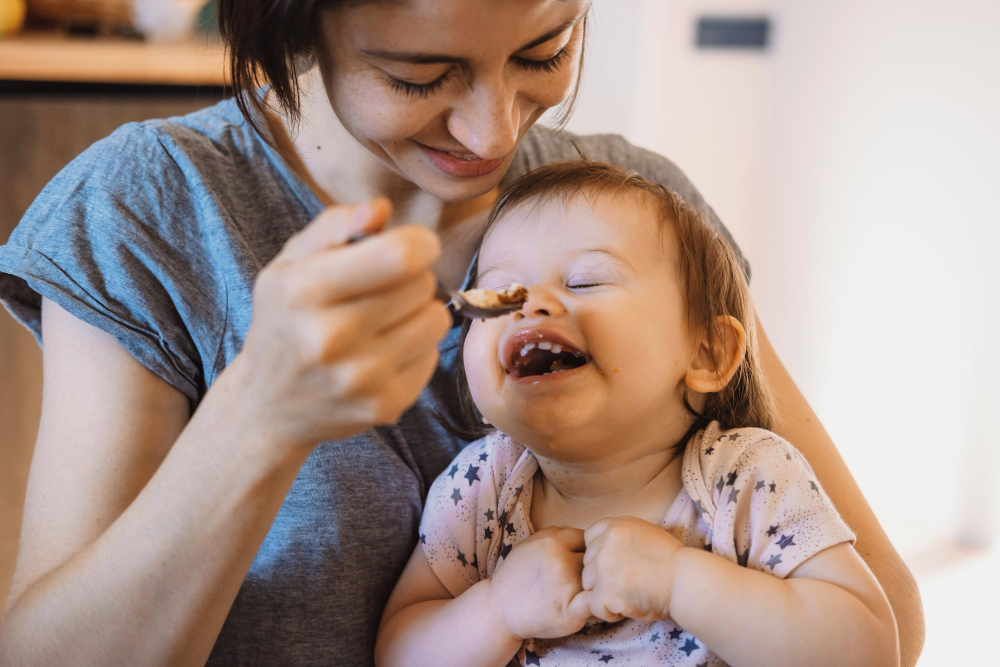
When it comes to introducing honey to babies, one concern that parents often have is whether honey poses a choking hazard. While honey is generally safe for older children and adults, it can be potentially dangerous for infants under one year old.
Babies under one year of age have an immature digestive system, and honey may contain spores of a bacterium called Clostridium botulinum. These spores can produce toxins in a baby’s intestinal tract, leading to a rare but severe illness called infant botulism. The symptoms of infant botulism include muscle weakness, difficulty feeding, and a weak cry.
To ensure the safety of your baby, it is recommended to avoid giving honey to infants under one year old. This includes avoiding honey in its raw form, as well as honey-containing products such as honey cereal or honey-flavored snacks.
If you’re concerned about your baby missing out on the nutritional benefits of honey, rest assured that honey is not a necessary or essential component of a baby’s diet. There are plenty of other nutritious foods that can provide similar benefits.
When introducing solid foods to your baby, it’s essential to focus on a variety of age-appropriate options that are easier for them to handle. Opt for soft, mashed foods that are less likely to pose a choking hazard. As your baby grows and develops, you can gradually introduce different flavors and textures into their diet.
The bottom line is that while honey is a natural and healthy sweetener, it should be avoided in the first year of a baby’s life due to the risk of infant botulism. By adhering to these guidelines, you can ensure the safety and well-being of your little ones as they explore the world of solid foods.
The Final Note: When Can Babies Have Honey?
In conclusion, introducing honey to babies requires caution and adherence to guidelines to ensure their safety and well-being. The American Academy of Pediatrics recommends avoiding honey entirely until the child is at least one year old. This is because honey can contain spores of the bacteria Clostridium botulinum, which can lead to infant botulism, a rare but serious illness.
Symptoms of infant botulism include muscle weakness, weak crying, and difficulty feeding. It’s important to note that heating or pasteurizing honey does not eliminate the risk. As parents, it’s essential to prioritize your baby’s health and strictly follow these guidelines to minimize the risk of infant botulism.
FAQs: When Can Babies Have Honey?
If you’re a parent who wants to learn more about when can babies have honey, be sure to check out our comprehensive guide. By following these guidelines, you can ensure your baby’s health and well-being while exploring the world of diverse foods. So, read on and make informed decisions for your child’s safety and nutrition!

